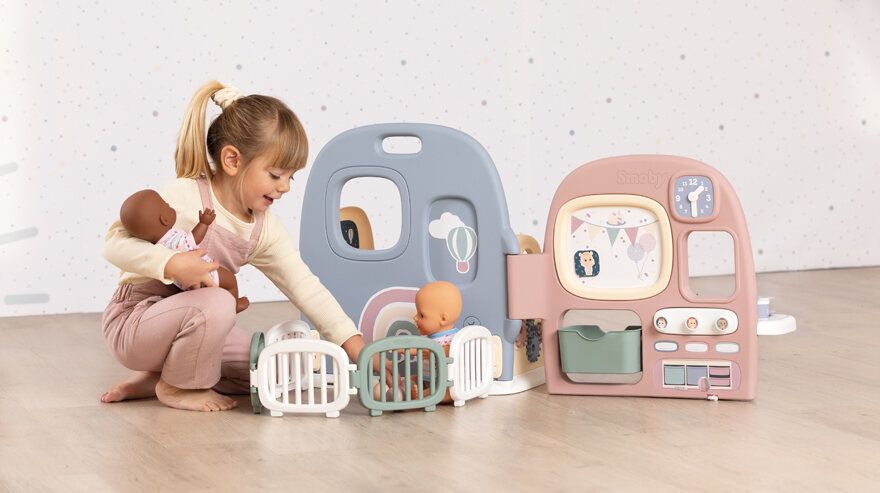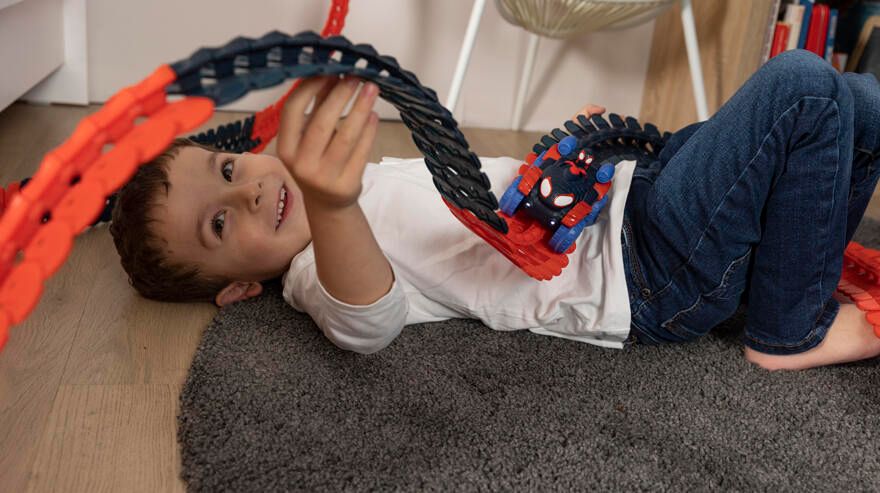How can games promote social skills?
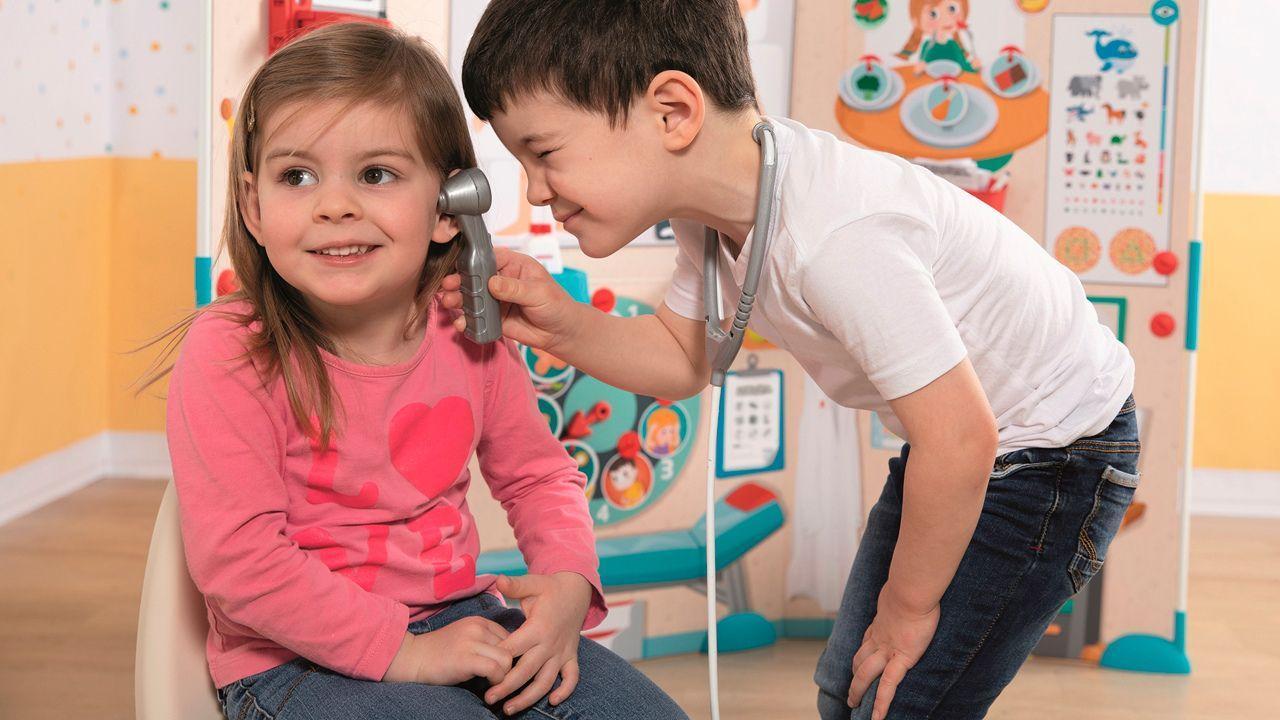
-
By
Katrin F.
Social skills games: how children learn important social skills through play
We humans are social beings and our entire lives are characterized by interpersonal encounters and relationships. That's why social skills are one of the most important building blocks of healthy child development.
In this article, we show how games strengthen social skills and explain how you can promote children's social behavior through play.
The most important points in brief
Below you will find detailed explanations of the following points:
Social skills:Social skills include numerous abilities, including the ability to deal with conflict, the ability to work in a team, empathy, the willingness to compromise and adaptability.
Games for social skills: You can promote your child's social skills with role-playing games, puppet games, shared outdoor toys and creative toys for crafting and painting, for example. The youngest children benefit from simple pegging and stacking games supervised by their parents.
Encourage social skills in everyday life: Planregular fixed times to play together with your child and encourage your child and their friends or siblings to try out different team games.
What is social competence all about?
The term social competence encompasses a whole range of skills that enable us humans to move safely in social interaction. People with a high level of social competence, for example, are able to behave in a socially appropriate manner without losing sight of their own individual needs. These are probably the most important skills in the area of social competence in children:
Empathy: understanding and sensitivity to the thoughts and feelings of others
Communication skills: the ability to communicate with others and express your thoughts verbally
Conflict skills: ability to endure, address and overcome conflicts
Ability to work in a team: willingness to work with others and engage in constructive cooperation
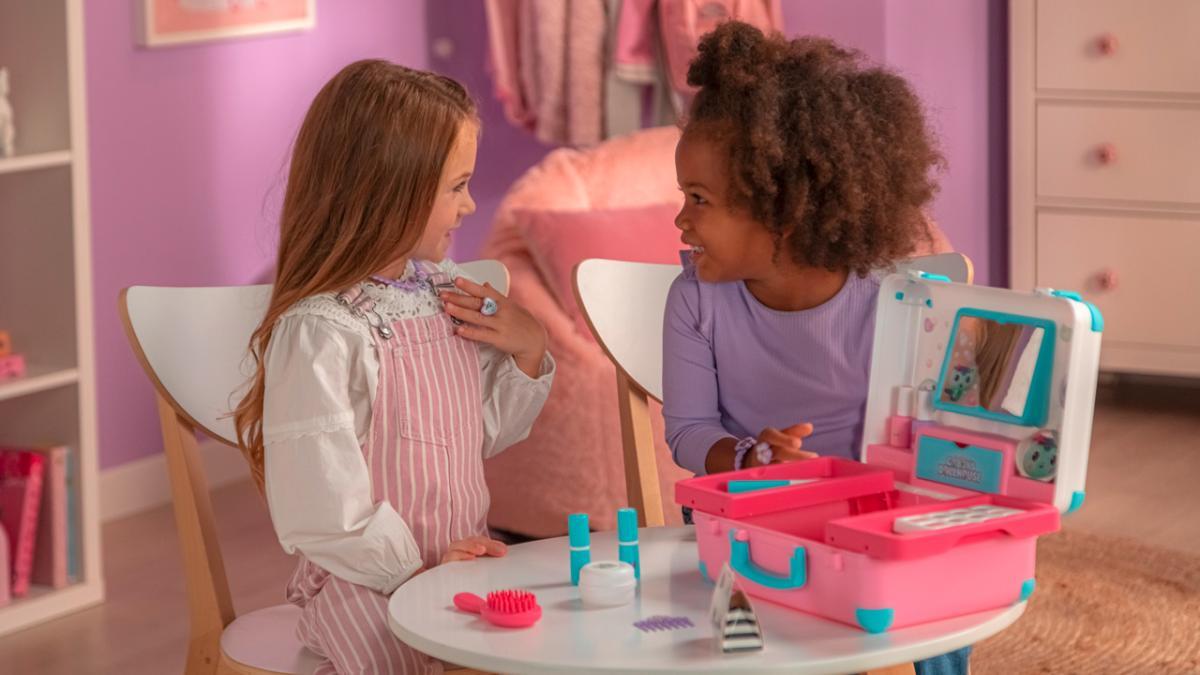
Sense of responsibility: Understanding the responsibility one bears for one's own behavior and expressions when dealing with other people.
Assertiveness: the ability to clearly express one's own opinions and wishes and to stand up for one's own convictions
Adaptability: ability to act and behave in a way that is adapted to social and societal norms and customs
Self-confidence: Clarity about one's own abilities, values and character traits, which leads to a confident demeanor in interpersonal situations
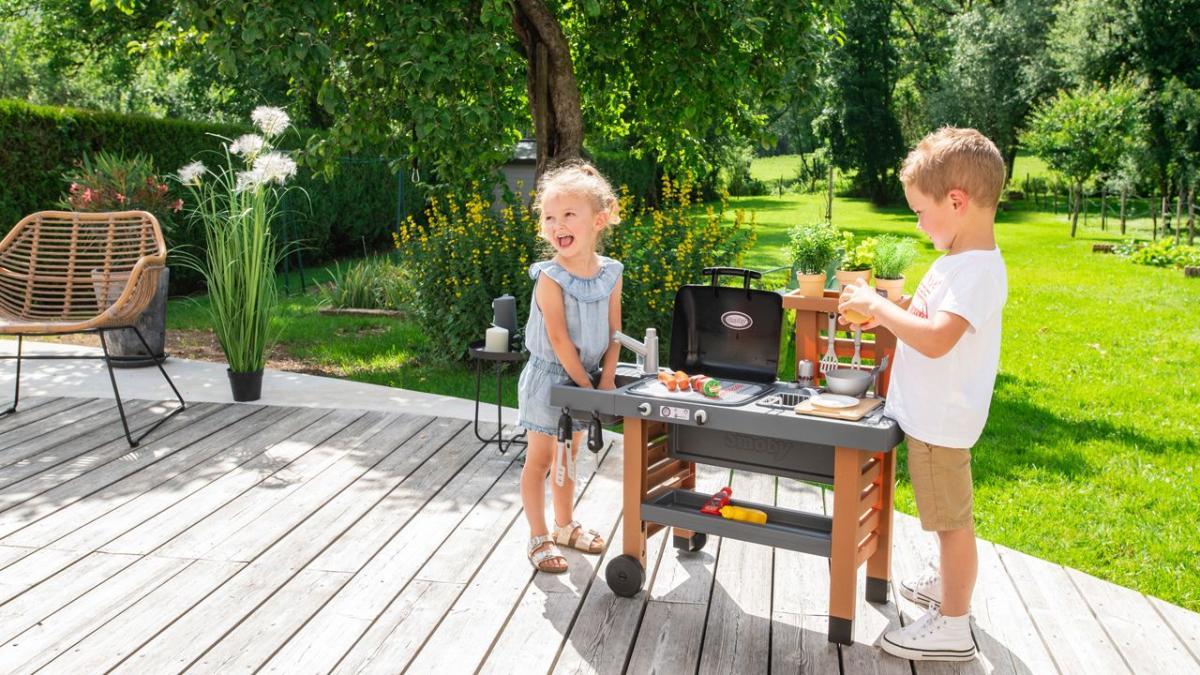
Willingness to compromise: willingness to consider the opinions and wishes of others and, where possible, to reconcile them with one's own divergent ideas
Self-reflection: ability to mentally analyze one's own thoughts, feelings and actions
Tolerance: Acceptance of characteristics, attitudes and opinions that differ from one's own
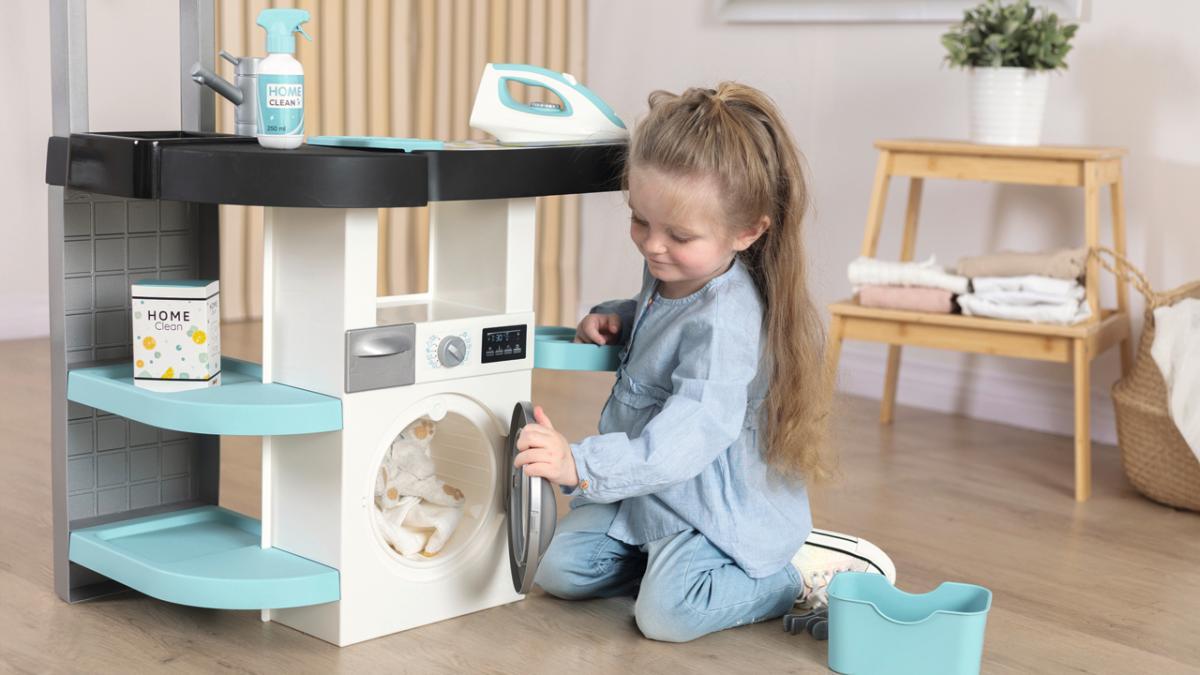
These skills are essential not only for adults, but also for children to find their way in the world and, for example, to make friends, overcome disputes, stand up for themselves or fit into groups. It therefore makes a lot of sense to start promoting children's social behavior at an early age. You can do this, for example, by integrating toys and games for social skills into your child's everyday life.
What role does play play in the development of children's social skills?
It is a fact that educationally valuable games promote social skills. After all, gaining interpersonal experience is one of the main reasons why children play in the first place. Playing with other children or adults allows your child to practice social interaction, experience a wide variety of interpersonal situations and try out different types of behavior. Your child learns to adapt to other people, to assert their own interests in the group and to deal with disagreements. They will also learn that you can achieve more together than alone. Our guide "Why do children play?" has more exciting information for you on the developmental effects of children's play.
Help your child develop social skills with role-playing toys
The undisputed number one game for social skills is role-playing.
Role-playing toys allow your child to slip into different roles and take on different perspectives.
When they play with our play kitchens or the Smoby laundry room, for example, they have the opportunity to imitate adult role models when doing household chores, while the doctor sets help them to train their empathy when examining their patients. At the Little Smoby parking garage play station with its numerous play elements, on the other hand, he can work together with friends to wash the cars, park them or take them from A to B.
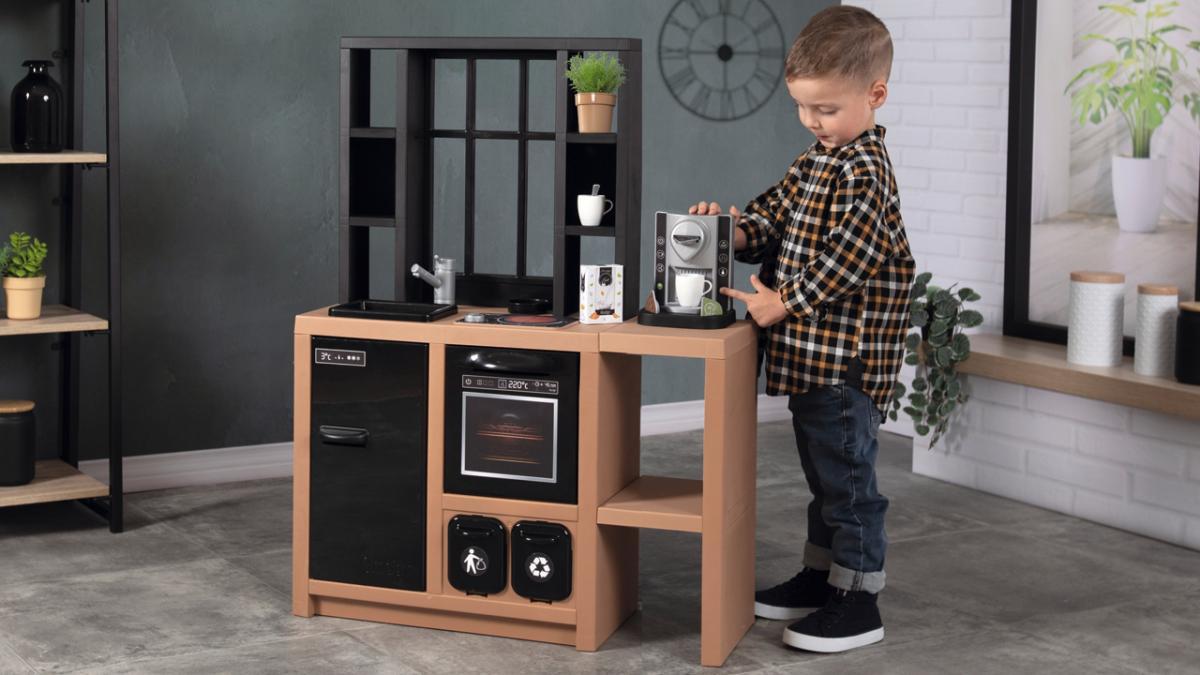
Doll toys are just as suitable for games to strengthen social skills. No matter whether your child accompanies their little darling to the Smoby doll nursery, feeds them with the magic bottle or rocks them to sleep in the Maxi-Cosi doll's cot:
It learns to care lovingly for others, to take their needs seriously and to take responsibility.
Promote social skills with baby & toddler toys
Games to promote social skills in babies and toddlers aim to teach simple, very basic social skills. If you want to promote social skills in children of this age group, you should use age-appropriate baby and toddler toys. Stacking and pegging games, such as the Little Smoby motor skills toy set or the Kaboom Cube pegging game, are ideal.
Playingwith such games for social skills teaches your child to share their toys and let others play with them - because playing together is even more fun! At the same time, your child will learn patience if they have to wait for another child to release the desired play element on the Smoby activity play table.
For maximum encouragement, you can accompany the game with language to strengthen social skills. When playing with the colourful motor skills cube, you could, for example, verbalize which of the many play options your child is using at that moment, motivate them in simple words to try out new things and make simple suggestions. Be generous with your facial expressions and gestures: this way, your child can gain important experience in the perception and interpretation of facial expressions and movements.
Get creative with group and cooperative games for children
Promoting social skills in children naturally also works with group and cooperative games that encourage collaborative play. Outdoor toys combine lots of social interaction with plenty of exercise in the fresh air. While exploring adventures with play towers and playhouses, such as the Smoby playhouse on stilts, your child learns to communicate with others, coordinate play scenarios and make compromises.
The games for social skills really pick up speed when children's vehicles are available.
How about a race with scooters or balance bikes? Depending on their age, you can leave it up to the kids to choose a route and set the rules. This way, social skills are already being promoted during the preparation of the actual game.
Strengthen social interactions through quiet activities such as crafting & coloring
Games to promote social skills do not necessarily have to be action-packed. Quiet activities with toys for crafting and painting also provide sufficient stimuli for developing social skills. Working together with creative toys, such as our Flower Deco creative set, invites children to share their own imaginative ideas, be inspired by the creations of others and, in the end, be proud of the crafts they have made together.
Tips for promoting social skills in children in everyday life
Are you wondering how you can integrate games to develop social skills into everyday life? This is actually quite simple, as many games have the potential to promote social skills. This at least applies to playful activities that your child does not do alone, but together with you, for example.
If your time allows, plan daily play times together to encourage social interaction. If your child has friends over, you can suggest team games. Try not to mediate directly when a disagreement arises and hold back from suggesting solutions.
This gives the children the chance to develop their conflict resolution skills and find solutions together.
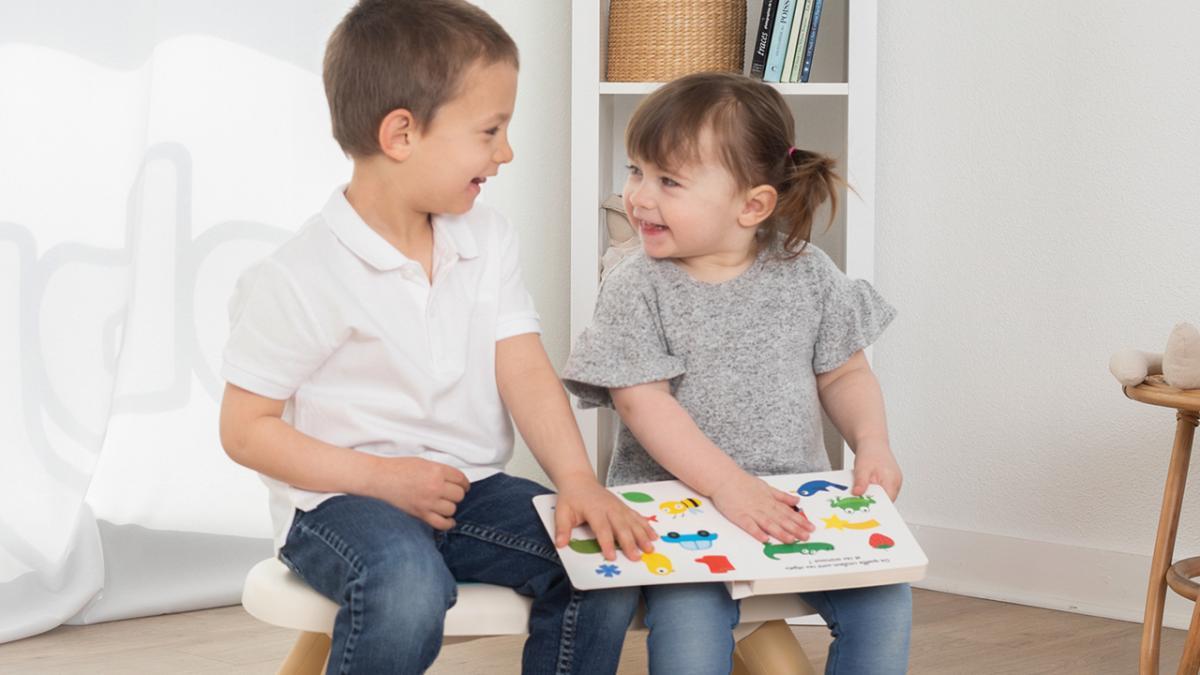
Even though high-quality, educational toys can provide you and your child with wonderful, stimulating play experiences, you don't necessarily always need toys to promote your child's social behavior in everyday life. Even the absolute classics, which do not require any equipment at all, can offer added value. Hide-and-seek, tag, races and similar tried-and-tested activities are among the games you can play to strengthen social skills at a particularly low cost.














